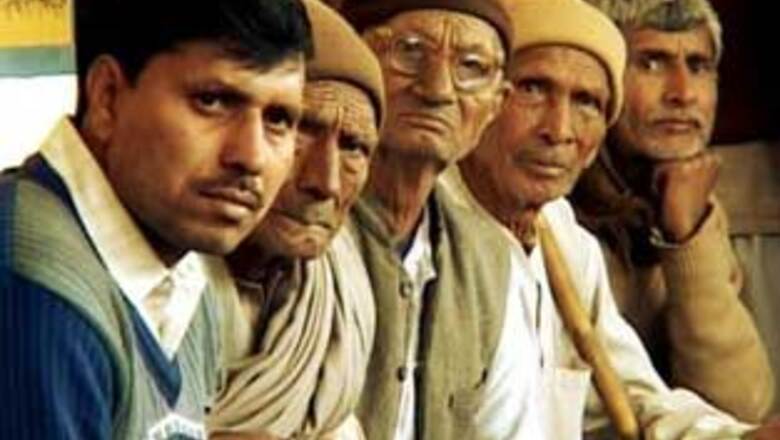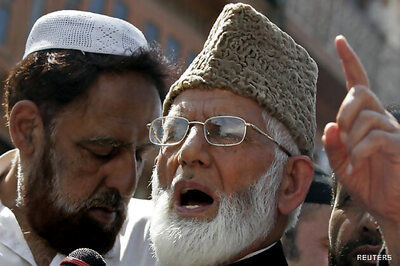
views
Even after 60 years of democracy, there seems to be a general apathy towards politics and politicians. The political fraternity is seen as corrupt and indifferent towards the people who they are supposed to represent.
Though a political career is clearly low on peoples' aspirations, there is a bag of mixed expectations from the neta. On the one hand the politician is expected to be a Mr Clean, but at the same time be smart enough to get peoples' work done in the corridors of power.
The apathy towards netas is extended to the state institutions they run directly or indirectly. They are deemed as corrupt and inefficient and the there seems to be a general feeling of distrust among people when it comes to governmental institutions.
However, the negative attitude towards politicians and politics, and the low expectations from governmental institutions does not mean that India is not a successful democracy. Elections and democracy have been at the core of India's political culture and the public opinion by and large stands in support of democracy. This seems to be the driving force behind public participation in elections. The seventh wave of the State of the Nation Survey conducted by CSDS in partnership with CNN-IBN seeks to gauge public opinion on issues related to politics and democracy.
THEMES COVERED
The survey covered following themes on terrorism:
- Anger with politics and politicians,
- Mixed expectation from political leaders,
- Distrust in governmental institutions,
- Support for democracy, and
- Citizen's participation
KEY QUESTIONS
The key questions that was addressed during the survey was:
- Does the ordinary person find politics complicated?
- Do people think that their representatives care for them?
- What do people think of politicians?
- What kind of a politician do people prefer and what do they expect from their representative?
- What do people think about getting work done in government offices/institutions?
- What is the general perception about public intuitions?
- Did those who interacted with these institutions actually pay bribes?
- What is public opinion on democracy; do they think it is the form of government?
- Who are those who feel that other alternatives to democracy might be necessary?
- Do people recognize the importance of political parties and elections?
- How frequently do people participate in public life?
- Why don't people participate in politics?
PAGE_BREAK
SURVEY METHODOLOGY
The survey was carried out at 882 locations among 14,786 respondent spread across 18 states of India. Questions on all institutions and themes were asked in all the 882 locations where the survey was conducted.
- Questions related to Police were asked to 5818 respondents;
- Questions related to Courts were asked to 5501 respondents;
- Questions related to Government Schools were asked to 5999 respondents;
- Questions related to Government Hospitals were asked to 5885 respondents;
- Questions related to RTO were asked to 5931 respondents;
- Questions related to Land Registration Office were asked to 5818 respondents;
- Questions related to Electricity Department were asked to 5885 respondents;
- Questions on Politics and Politicians were asked to 3005 respondents; and
- Questions on Participation and Democracy were asked to 2943 respondents.
All the sub-samples were repetitive of India's social and demographic diversity when matched with the figures from Census of India - 2001.
DO WE HAVE TRUST IN DEMOCRACY
How much trust do we have in democracy? Are politicians really seen as being corrupt and self-serving? What exactly do we expect from our leaders? Are we as a people willing to participate in Government. These are some of the questions that we have raised in this year's State of the Nation - Republic Day special.
The answers are somewhere surprising, somewhere on expected lines, but in either case they are eye-opening. As expected there is a sense of anger against politics and politicians in general - they are seen to be self-serving, corrupt and uncaring. 75 per cent people, for example, feel that our politicians are corrupt.
Those who say…
Yes
Politics is too complicated for me.
49
Politicians don't care about people like me.
58
On the whole politicians in the country are corrupt.
75
They would like their child to be a political leader.
23
Note: Figures in percent. Rest ‘no opinion’
PAGE_BREAK
But what is bound to be surprising - at least for those who have not yet developed a cynical attitude towards things - is the way we as a people are willing to choose our leaders. A fairly large percentage of people are willing to elect representatives who have the ability to 'get work done' even if they are corrupt or have a criminal background. The solace if any can be gained from the fact that the survey shows that there are people who think otherwise, and they are in a majority - even if by a slender margin.
Those who say that if given a choice, they will vote for…
Someone who is accessible but corrupt.
29
Someone who is very honest but not accessible.
47
Note: Figures in percent. Rest ‘can’t say/not sure’.
Those who say that if given a choice, they will vote for…
Someone is involved in criminal cases, but can be relied to get work done.
34
Someone who is known to be a gentleman, but can not always get work done.
40
Note: Figures in percent. Rest ‘can’t say/not sure’
Those who say that if given a choice, they will vote for…
A strong leader, who does not listen to anyone else.
27
Someone who consults everyone but is not a strong leader.
45
Note: Figures in percent. Rest ‘can’t say/not sure’.
Not so surprising - the perception of corruption is all pervasive - a majority feels that no work can be done, no file can be moved in a Government office unless one pays a bribe, or has the 'right connections'. But surprisingly, very few people themselves confirm that they paid a bribe to get work done.
Those who say that in a government department/office…
It is possible to get work done in a government office/department if the work is legitimate and one has all documents and information.
20
Legitimate work and proper documents and information are not enough to get work done in a government office/department connection and bribes are important.
44
Those who say that they paid a bribe…
In a government school
5
In a government hospital
7
At the RTO
8
In a court
11
In the electricity department
11
In the Land Registration Office
16
To the police
41
PAGE_BREAK
How many of us are still willing to lay their faith in Government institutions? A majority it seems from the survey, but is that out of compulsion rather than choice? For example, just 24 per cent people say that they won't go to a Government hospital if needed, thus implying that they trust Private medical facilities. 23 per cent say that they won't approach a court to resolve issues like land disputes, 20 per cent won't go to the police. Are these signs of 'the secession of the successful' as some social scientists describe how the affluent live in an oasis- with their own private schools, their own private hospitals, their own quick 'justice-delivery' mechanisms, cut-off from the depravation that the 'real' India lives in.
Those who say that if needed, they will…
Send their children to a government school.
23
If needed, go to the police.
20
Go to a government hospital.
24
Go to court to resolve some issue such as a land dispute.
23
Another eye-opening finding of the survey is on the form of Government that we as a people prefer. The number of people who prefer dictatorship has doubled, and lesser number of people prefer democracy as compared to just four years ago. Again an eye-opening finding tells us that it is the young, the urban elite and the educated who have a liking for dictatorship, thus implying that those in the lower strata of society have greater faith in democracy - a fact that successive election turnout figures confirm time and again.
Those who say that in certain situations a dictatorial government is preferable…
All 2009
12
Young (18-25)
17
Urban elite
19
Graduates and post-graduates
21
But there is still faith in the party system, although the gap between those seeking military rule and civilian rule is not too huge. There is also a strong urge to have leaders who are not driven by populism, and for CEO type of leadership which can work independently of politicians.
Those who say…
Democracy is preferable to any other form of government
49
In certain situations a dictatorial government is preferable
6
Democracy or dictatorship does not matter to people like them
14
Those who…
The government will run better if without parties, assemblies and elections.
13
The Army instead of politicians should govern the country.
26
We should have a strong leader who does not have to bother about elections.
41
Experts who are not answerable to political leaders should run the country.
44
PAGE_BREAK
A fairly large - 81 per cent to be exact - number of people say that they vote in most elections, but very few of us participate in public life. Just 26 per cent people are part of either trade unions or farmers' organisations or student bodies. Just 22 per cent participate actively in a political party.
Those who…
Vote in most elections.
81
Participate in activities of trade unions, student organizations or farmers’ associations.
26
Participate in activities of political parties.
22

















Comments
0 comment